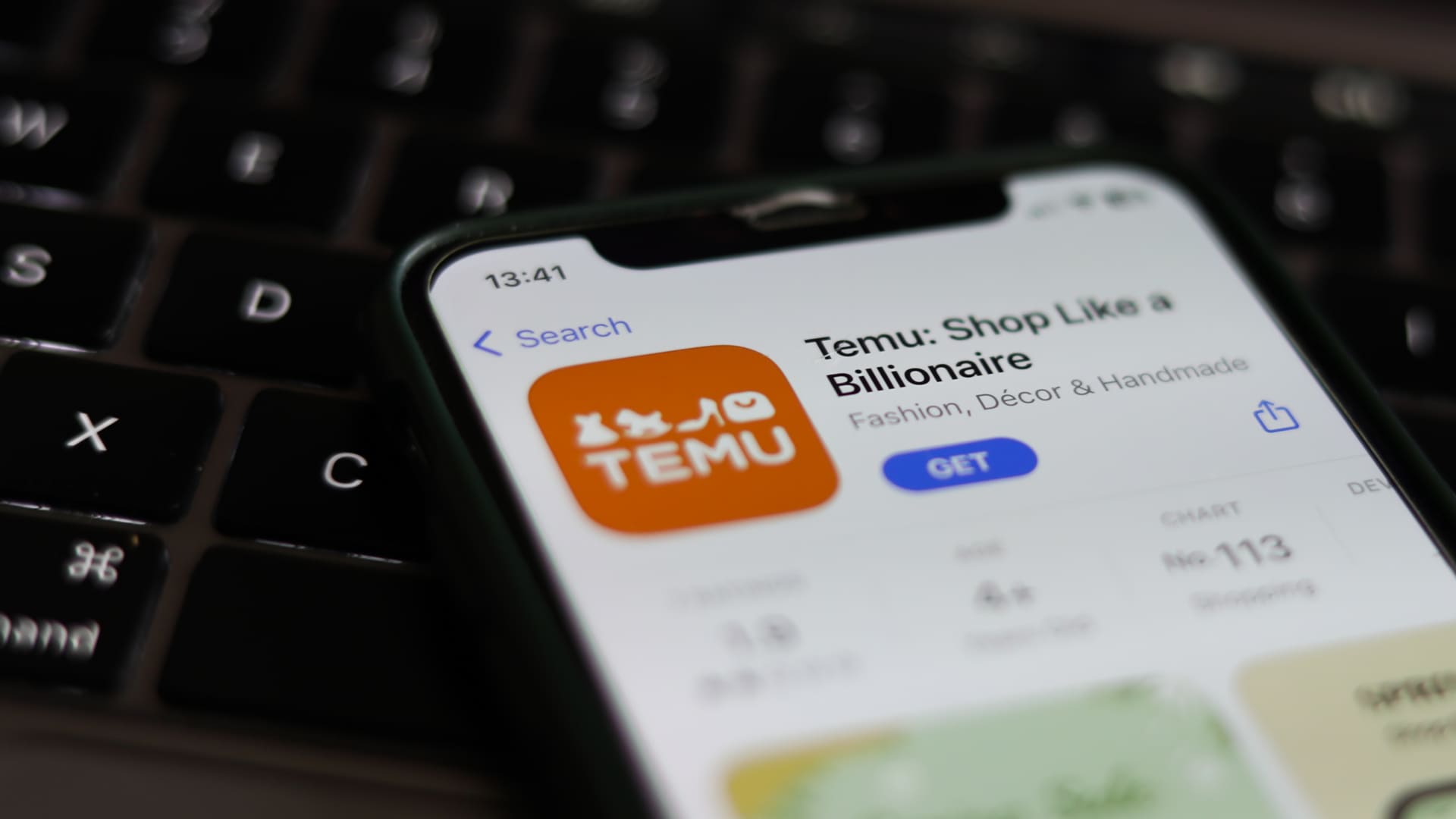These big names in retail could get hit by Temu’s surging growth, Bank of America says

The explosive growth of Temu, the U.S. arm of Chinese e-commerce giant Pinduoduo , could spell trouble for some major retailers, according to Bank of America. Temu offers products directly from manufacturers worldwide, allowing it to keep costs and prices low. It generated sales of around $12 billion in 2022, equivalent to 12% of Target’s sales, according to the Wall Street bank’s analysis of credit card data. Just six months ago, Temu’s sales were only 4% of Target’s. Consumers have welcomed Temu’s rapid growth, but competitors are likely to lose market share and could see smaller profits in the near future. “Retailers targeting young adults at low price points are particularly vulnerable,” said Bank of America’s analysts, led by Thomas Thornton, in a note to clients on Nov. 17. The analysts say Temu’s growth has been fueled by aggressive advertising using influencers, social media and search, with daily active users reaching 40% of Amazon’s level. Retailers at risk The BofA analysts say retailers competing on price alone are particularly exposed to Temu’s disruption. They suggest Old Navy and Kohl ‘s private brands are “at risk of being out-priced.” Fashion-oriented companies like Revolve , Urban Outfitters , and American Eagle could also be undercut on price, the bank said. European retailers aren’t immune to Temu’s disruption either. Bank of America believes online fashion retailers like Boohoo and Asos are vulnerable to losing their market share, while H & M is more exposed than Zara parent Inditex , which can leverage supply chain speed and higher prices. Despite the broad risks to Western retailers, Bank of America cautioned that Temu’s rapid expansion may not be sustainable in the long term if the appetite for losses and ad spending by its parent wanes. However, Pinduoduo is expected to grow ad spending again in 2024, which could help Temu avoid slowing down in the medium term, the analysts said. Insulated retailers In the United States, the analysts suggest Walmart and Target have advantages that should insulate them. Those include long-standing consumer trust, perception of product quality, and ease of access. Bank of America also thinks Five Below will be resilient as its value proposition goes beyond price. Just like the grocers, Five Below’s in-store experience creates urgency and drives repeat visits in a way online shopping does not, the analysts said. Separately, analysts at UBS investment bank also see Temu’s growth in a similar vein. “Overall, we think the risk that Temu will significantly disrupt many of these retailers is limited,” the Swiss bank’s analysts wrote in a note to clients on Nov. 20. UBS said Costco , ULTA , Home Depot , Lowe ‘s, and auto part retailers were the “most insulated” from the rise of the Chinese e-commerce app. — CNBC’s Michael Bloom contributed to this report.









